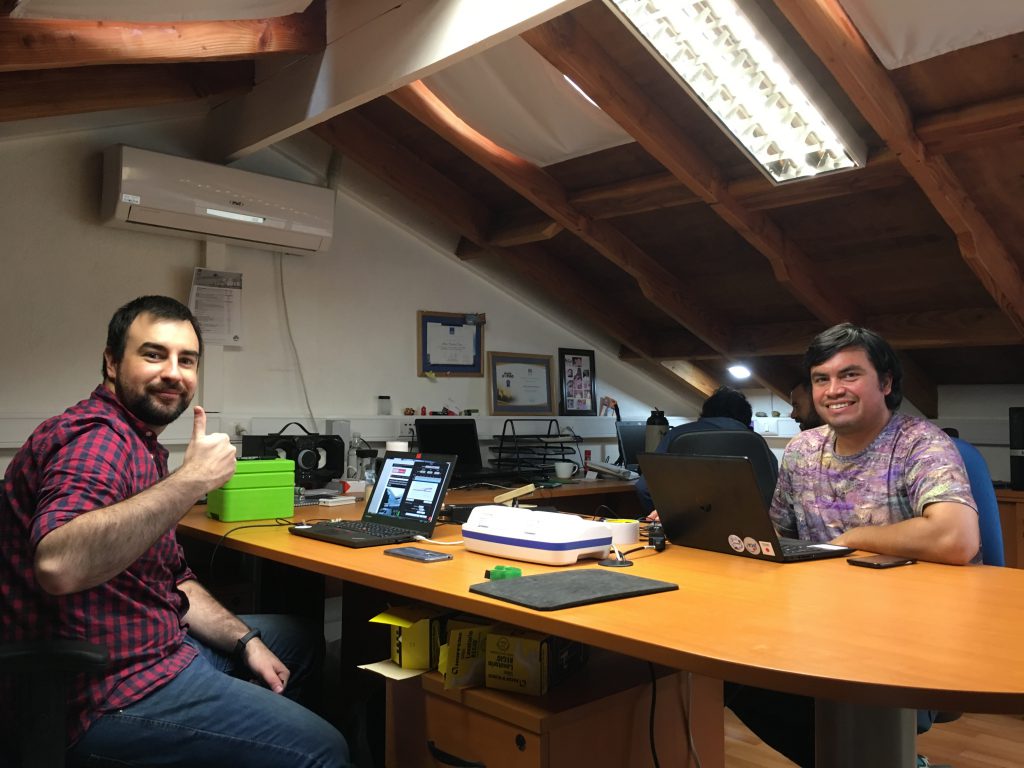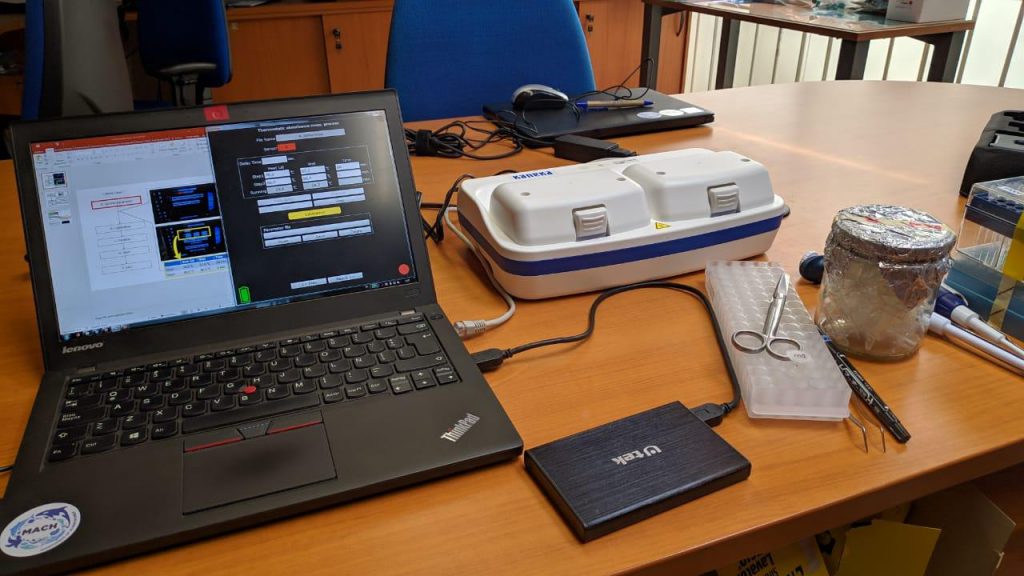On March 5th (Tuesday) 2019 field work was developed in the IFOP-CREAN facilities by MACH-SATREPS lab assistant Mr. Joaquin Rilling (assigned to assist Dr. So Fujiyoshi in UFRO). The field work developed consisted in the detection of Alexandrium catenella in water DNA samples collected from Los Lagos Region through Loop-mediated isothermal DNA amplification (LAMP).
The methodology applied required Mr. Rilling to travel personally to Puerto Montt to bring both the suitcase lab where the equipment (Kaneka LAMP detector) its contained, and to use it due to his expertise. In this opportunity, the DNA samples were provided directly by Dr. Kyoko Yarimizu, who detected the presence of A. catenella microscopically before the DNA extraction procedure.
The results of the LAMP analysis confirmed the observed by Dr. Yarimizu, and also allowed the detection of the target microorganism in samples where microscopic evaluation did not reveal its presence. Complementarily, the field work experience allowed Mr. Rilling to provide LAMP training to Mr. Jonnathan Vilugron, Dr. Yarimizu’s lab assistant for future proceedings, as well as to bring samples under cold storage to UFRO.

UFRO lab assistant Mr. Rilling (left) and IFOP lab assistant Mr. Vilugron (right)

LAMP detector with Mr. Rilling personal laptop

(Left)A. catanella positive(Right)Negative control
Under UV light, visual fluorescence detection can be conducted (Left)